| 1. A halt-and-go rescue op in final stretch |  | How long will it take?- Workers trapped in Uttarakhand's Silkyara tunnel since November 12 are likely to be rescued early Friday, National Disaster Management Authority on Thursday evening.
- Rescue operations suffered setbacks on Thursday with drilling through the rubble of the collapsed tunnel put on hold again.
- Rescue operations to evacuate the workers resumed on Thursday morning after an overnight hurdle delayed the drilling by several hours.
What happened- The platform on which the equipment is mounted developed some cracks. This forced rescue workers to redirect their efforts to "stabilise" the platform on which the 25-tonne auger machine was mounted before drilling resumed.
- Sections of steel pipes were being inserted through the rubble of the collapsed portion for the workers to be brought out.
Expect more hurdles?- The NDMA's Syed Ata Hasnain said the horizontal drilling to rescue workers may face 3-4 more hurdles.
- He also noted that it would not be fair to speculate on the timeline for rescue operations as it is just like fighting a war.
Condition inside the tunnel- Hasnain said the workers trapped inside are safe, and there is no shortage of light or oxygen. Food, water, clothes and medicines are being supplied to them.
- A better communication channel with the workers has now been established. The authorities, including psychosocial workers, are able to directly talk with the trapped men, he said.
- The National Disaster Response Force (NDRF) teams are at the site, conducting rehearsal and practice for the recovery of the trapped men.
The plan- The authorities have kept 41 ambulances, one each for trapped workers, ready at the tunnel site, and facilities are in place to airlift workers in serious condition.
- The trapped workers will be pulled out on wheeled stretchers one by one through the pipe that is being drilled to reach them, NDRF chief Atul Karwal said.
- The rescuers have also considered the option of making the workers crawl out one by one. More here
| |
|
|
|
| 2. Will SC review same-sex verdict in open court? | 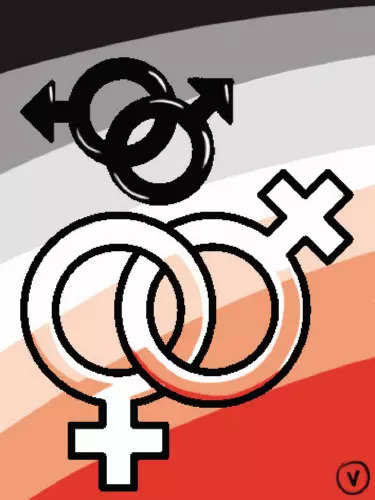 | What- A petition seeking review of the October 17 verdict refusing to accord legal recognition to same-sex marriages by queer couples was on Thursday mentioned before the Supreme Court for an open court hearing.
A matter of discrimination- A bench led by Chief Justice DY Chandrachud took note of the submissions of senior advocate Mukul Rohatgi, appearing for one of the petitioners, that the review plea needed to be heard in open court to redress the grievances of those seeking validation of same-sex marriages.
- "All judges (of that constitution bench) agreed that there is discrimination and if there is some kind of discrimination then there has to be a remedy. The lives of a large number of people depend on it. We have urged for an open court hearing," Rohatgi said, adding that the review plea was listed for consideration on November 28.
What the rule book says- According to apex court procedures, the pleas seeking review of a judgment are considered by judges concerned in chambers with no oral submissions by lawyers.
- However, review pleas in exceptional cases, including the one pertaining to handing down the death penalty, are heard in an open court.
And, a ray of hope- The Madras High Court order aimed at providing minimum protection from harassment and discrimination to LGBTQIA+ couples by suggesting to the Tamil Nadu government to consider adopting a "deed of familial association" for recognising such relationships, has come like a ray of hope for the community.
- An emerging concept, the 'deed of familial association', as proposed by the petitioner in the case, provides for a deed to ensure that two persons from the LGBTQIA+ will have a right to live in a relationship and also have a right to protection.
- The deed will provide a shield against harassment by society and discrimination that can impact employment, housing and assimilation in society.
| |
|
| 3. Why govt thinks deepfakes are 'a threat' to democracy | 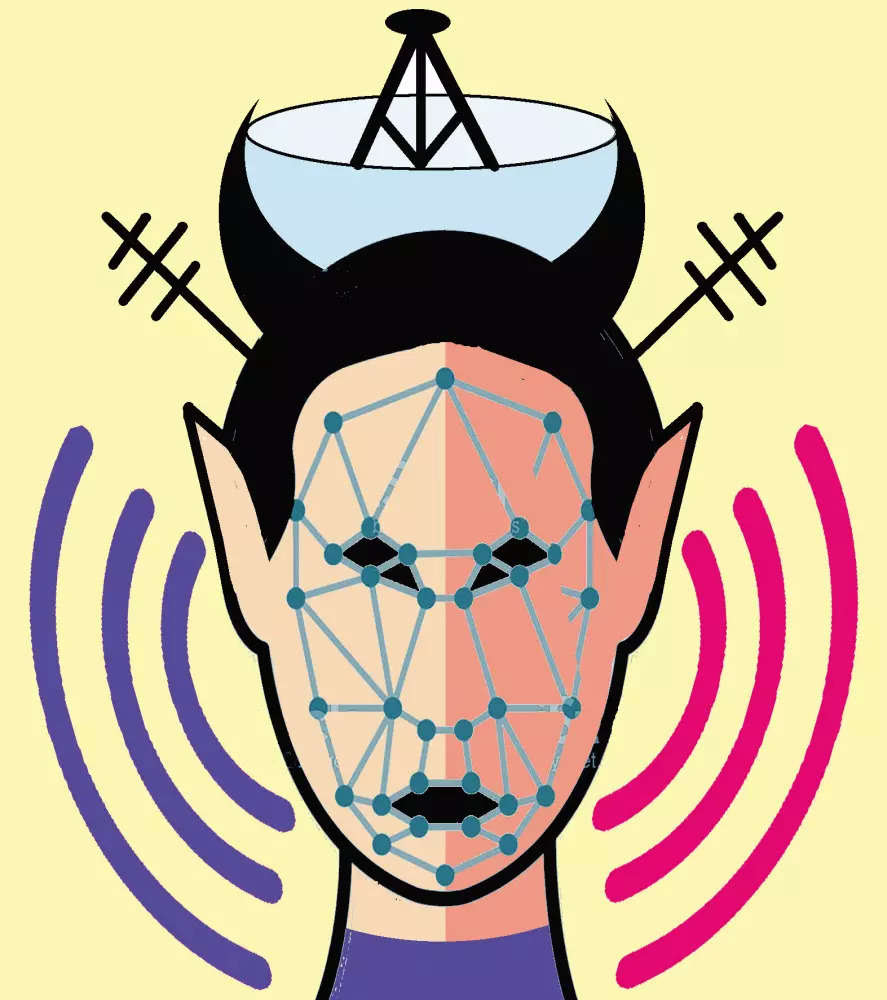 | What- The government is planning new regulations that may impose penalties on both creators and platforms hosting deepfakes, as it looks to clamp down on what IT and Telecom Minister Ashwini Vaishaw described as "a threat to democracy"
- Last week, PM Narendra Modi also warned about the threat deepfakes pose.
Proposed regulations- The Proposed regulations may encompass measures like watermarking, detection tools, addressing biases, and privacy safeguards.
- Social media platforms and stakeholders align with the government's concerns, pledging extensive technology for deepfake detection.
Timeline- The government aims to draft regulations promptly, emphasising detection, prevention, reporting, and awareness within a 10-day timeline.
- Discussions on deepfake regulations will continue in early December, with a focus on curbing harmful content and ensuring accountability for creators and platforms.
Concerns- India, with 80 crore internet users, is poised to exceed 120 crore in two years.
- And Deepfake, using AI, convincingly alters appearance, voice, or actions, posing challenges in distinguishing from genuine content.
- Giving examples of deepfakes, the minister said during electioneering in Madhya Pradesh, a video surfaced in which the chief minister was kind of saying to vote for the opposite party.
- Recent deepfakes underscore the imperative for a regulatory AI framework within the emerging Digital India law.
Threat to democracy?- In India's round-the-year election cycles, political parties engage in a constant battle. Deepfake narratives can be employed to sway voting patterns, with political parties effectively leveraging their own agendas, adding complexity to the political landscape.
- Also consider how doubt can easily be sowed against acts of investigative journalism that reveal abuse of power and corruption, because the journalists' audio or video evidence can be falsely labelled as deepfakes.
- Collectively, it can all lead to manipulation of elections, widening social divisions and lowering of trust in institutions.For more
| |
|
| 4. A new SC bench to review PMLA verdict |  | What- The Supreme Court on Thursday said the pleas challenging the validity of some provision of the Prevention of Money Laundering Act (PMLA) would be heard afresh by a new bench.
- This comes as the Centre pressed for adjournment and the presiding judge is retiring next month.
- The court heard arguments for two days on a batch of petitions seeking review of its verdict upholding the law in 2022.
Centre's argument- A bench of Justices Sanjay Kishan Kaul, Sanjiv Khanna and Bela M Trivedi heard the case for the entire day on Wednesday and till 3 pm on Thursday, during which petitioners concluded their submission but the Centre.
- The Centre, which has been from the beginning seeking deferment of hearing because of petitioners amending their petition at the last moment, again argued that it be allowed to make its submissions on some other day.
- Referring to additional prayer incorporated in the petition, Solicitor General Tushar Mehta said he was "handicapped" and needed some time to respond to the pleas of the petitioners who have expanded their challenge to the 2022 verdict beyond the issues they had initially raised.
Justice Kaul to retire- With December 15 being the last working day for Justice Kaul, the bench said it would not be possible for them to conclude the hearing and pass the judgment before December 15 in case of adjournment.
'A heavy heart'- Justice Kaul accepted the Solicitor General's (SG) request even as he made his disappointment plain. "What can I do...I am doing this with a little heavy heart," Justice Kaul said as went ahead with dictating the order for adjournment and placing the case before CJI for constituting a new bench.
- No less disappointed were senior advocates Kapil Sibal and A M Singhvi, who had strongly opposed the Centre's plea for adjournment, with the former saying that two days of judicial time got "wasted" - a remark which was frowned upon by Justice Khanna.
| |
|
| NEWS IN CLUES | | 5. Identify this political leader | Clue 1: Served as minister in both NDA and UPA governments
Clue 2: Member of the INDIA opposition bloc
Clue 3: Third CM in a particular state to lose election in own constituency
Scroll below for answer
| |
|
| 6. Another notice to Rahul for remarks on Modi |  | What- The Election Commission issued a show-cause notice to Congress leader Rahul Gandhi on Thursday for his "panauti", "pickpocket" and "loan waiver for the super-rich" jibes at PM Narendra Modi.
- The poll panel has asked Gandhi to respond to its notice by Saturday.
- The EC notice said the expression "panauti" ex-facie falls in the list of prohibited expressions under the law.
Why- The BJP had approached the poll panel against Gandhi, saying it was "unbecoming" of a "very senior leader" to use such language.
- The EC reminded Gandhi that the Model Code of Conduct prohibits leaders from making unverified allegations against political rivals.
- The Congress leader used those words targeting the prime minister at recent rallies in poll-bound Rajasthan.
What Gandhi said- At an election rally in Rajasthan, Gandhi referred to India's loss to Australia in the Cricket World Cup final, saying Modi "comes on TV and says 'Hindu-Muslim' and sometimes goes to a cricket match. It is a different matter that the match was lost. Panauti... PM means Panauti Modi."
- A Hindi slang, "panauti" loosely refers to someone who brings bad luck.
- On Wednesday, at another election rally, Gandhi alleged Modi diverted people's attention while industrialist Gautam Adani picked their pockets. This is how pickpockets operate, he alleged.
Some support- NCP leader Supriya Sule said Gandhi is a fighter and would give an "honest and dignified" reply to the EC notice.
- "He is a fighter and he will fight. I am confident he will put up a brave fight and will not be scared of anyone."
A past connection- In March this year, a Gujarat court convicted Gandhi and sentenced him to two years in prison in the Modi surname case.
- During the 2019 election campaign in Kerala, Gandhi had taunted the PM asking why "all thieves have Modi as [their] common surname".
- The Supreme Court suspended the sentence in August, leading to revoking Gandhi's disqualification from the Lok Sabha.
| |
|
| 7. Why India joined Africa Group against rich nations | 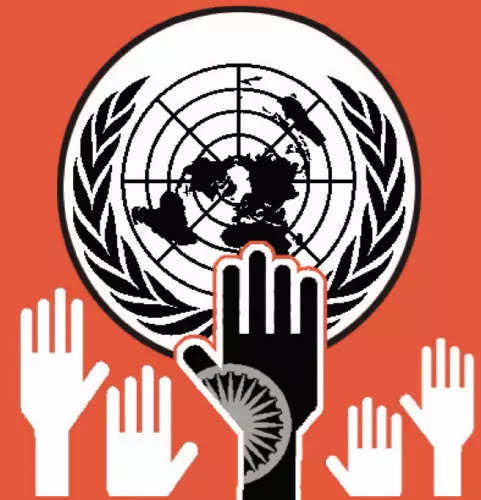 | What- India joined 124 countries to vote overwhelmingly in favour of a resolution in the United Nations General Assembly (UNGA) calling for a UN tax convention to transform the global tax stratosphere.
- The resolution was tabled by the 54-member Africa Group under the title, "Promotion of inclusive and effective international tax cooperation at the United Nations".
- If put into force this could be a historic move that would shift the reins of global-tax policy decisions from the Organisation of Economic Cooperation and Development (OECD), whose members are developed rich nations, to a more equitable platform.
Why- It's part of a long-running campaign for the UN to have greater influence over international tax rules.
- Anti-poverty campaigners argue that multinational corporations take advantage of OECD-dominated tax rules, denying poor countries vital revenues.
- to tackle poverty and cope with the climate crisis. to avoid taxation in poorer countries.
- They demand that the UN must have a greater say on taxing big corporations to tackle poverty and cope with the climate crisis in poorer countries.
The core issue- The OECD — a group of 39 high-income countries including the US and the UK — has dominated international tax policy, spending decades making rules and arrangements governing how multinational corporations pay tax.
- However, the OECD has faced criticism as large corporations have used these rules to swerve their obligations, by using low-tax jurisdictions, to deny revenues to poorer countries.
- Frustrated with the OECD process, the Africa Group tabled a resolution at the UNGA last year.
What next?- The resolution that was passed by a 125:48 majority — with countries like India, China and other BRICS nations — would need a wider agreement and approval of the UNSC members, including the US and the UK.
- The resolution movers have accused the EU and the UK of blocking the tax reform process during intense negotiations over the past month.
- Negotiations between governments for such a UN tax framework are likely to begin next year.
| |
|
| 8. Another 'flu-like' outbreak in China | 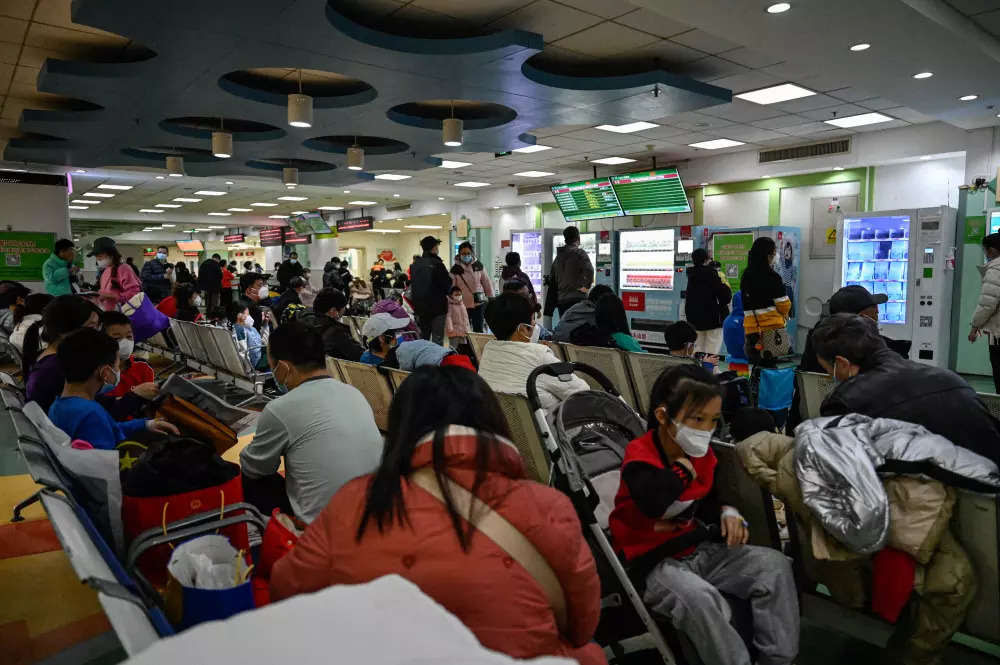 | An alert- The World Health Organization (WHO) has asked China to provide detailed information regarding the surge in respiratory illnesses in the northern part of the country.
- China is reportedly witnessing a surge in "influenza-like illness" (ILI) in since mid-October, contrasting with the same period in the previous three years.
- Additionally, the WHO is inquiring about the level of overcrowding in the healthcare system in response to the surge in respiratory illnesses.
ProMed flags it- The outbreak alert has come from disease monitoring service ProMED, which flagged "undiagnosed pneumonia — China (Beijing, Liaoning)".
- ProMed is the same agency that had first flagged the outbreak of ILI in late 2019 in China. Its alert sent on December 30, 2019, reported "undiagnosed pneumonia - China (Hubei)".
- This outbreak was later named Covid-19, which turned into a pandemic, bringing the world to its knees.
- Scientists caution against immediate pandemic fears, emphasising the need for more diagnostic information to assess the situation accurately.
What China says- China's National Health Commission attributed the spike in respiratory illnesses to the easing of Covid-19 restrictions and the circulation of known pathogens, such as influenza and common bacterial infections affecting children, including mycoplasma pneumonia.
On the ground- China's capital Beijing, currently facing a cold snap, is entering a high incidence season for respiratory infectious diseases.
- Wang Quanyi, deputy director and chief epidemiological expert at the Beijing Center for Disease Control and Prevention, said the city was experiencing a convergence of multiple pathogens.
The symptoms- The primary symptoms reported are fever, cough, and difficulty in breathing. The severity of the cases varies, with some patients requiring hospitalisation.
- Local hospitals, such as the children's hospital of Beijing's Capital Institute of Pediatrics, are witnessing an influx of concerned parents and sick children.
An advisory- The WHO had urged people to take preventative measures, including maintaining distance from sick individuals, and wearing masks.
| |
|
| 9. Fighting gender violence is an economic challenge |  | A concern- Gender-based violence receives only 0.2% of global aid and development funding, a UN Women report has revealed, emphasising the insufficient resources dedicated to addressing this critical issue.
A snapshot- UN Women's Gender Snapshot 2023 report says 245 million women and girls continue to experience physical and/or sexual violence from their intimate partners annually.
- Additionally, 86% of women and girls reside in countries lacking robust legal protections against violence or where data is unavailable.
The impact- Economic crises, conflicts, and climate change exacerbate the vulnerability of women and girls to violence, emphasizing the multifaceted impact of external factors on GBV.
Gender-related killings- The new research, jointly produced by UNODC and UN Women, says that nearly 89,000 women and girls were intentionally killed globally in 2022, marking the highest yearly number recorded in the past two decades.
- About 55% of these intentional killings (approximately 48,800) were committed by intimate partners or other family members which means that, on average, more than 133 women or girls were killed every day by someone in their own family.
A comparison- While most homicides worldwide are committed against men and boys (80% in 2022), women and girls are disproportionately affected by homicidal violence in the home.
- They represent approximately 53% of all victims of killings in the home and 66% of all victims of intimate partner killings.
A grave challenge- Despite efforts to address gender-based violence, the number of female homicides is not decreasing, underlining the persistent challenges in combating violence against women and girls.
What's needed- The report emphasises implementing comprehensive solution that includes increase in funding, gender-responsive budgeting, and the active involvement of stakeholders to end violence against women and girls globally.
| |
|
|
| Answer To NEWS IN CLUES | 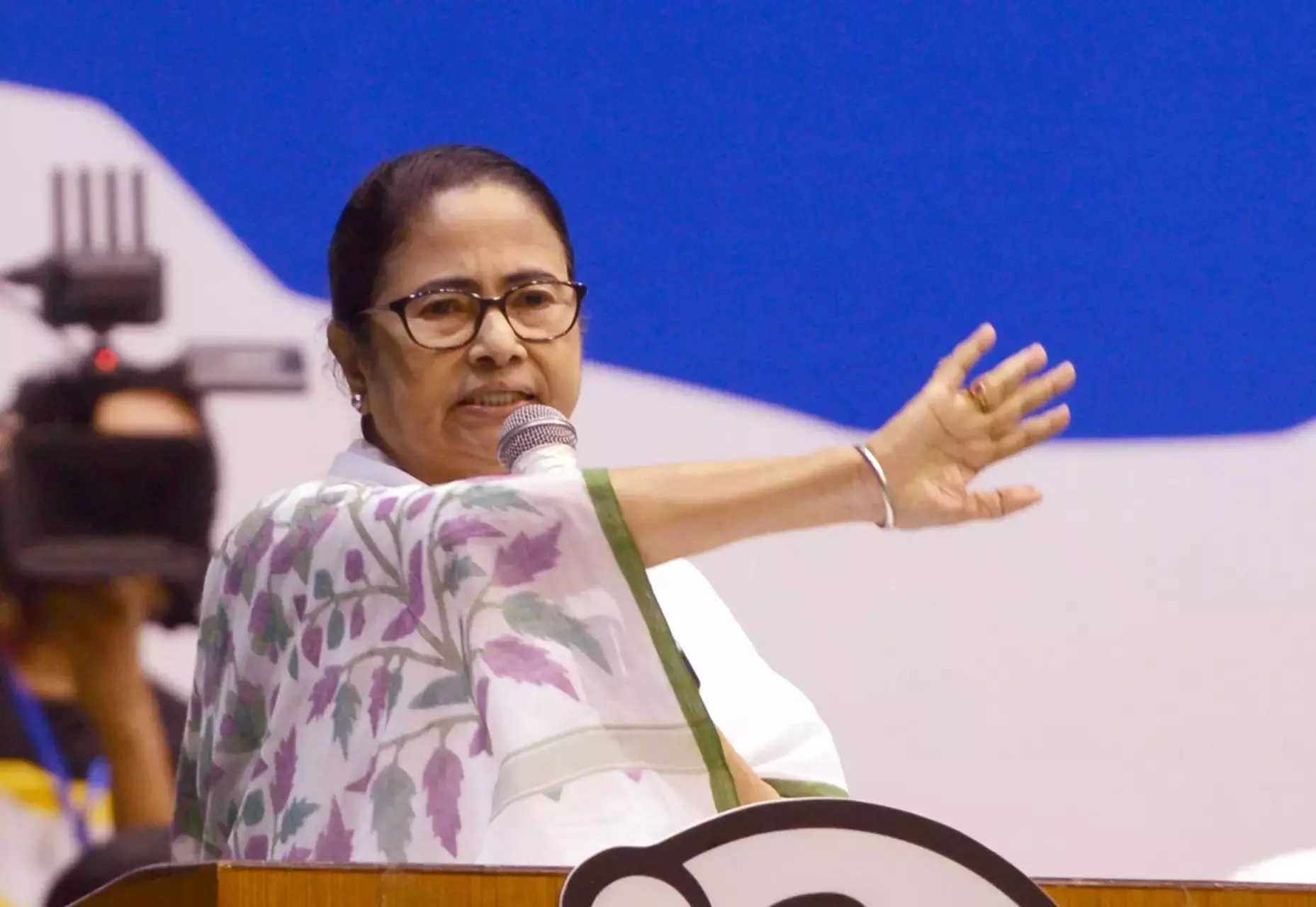 | Mamata Banerjee. Breaking her silence on the cash-for-query controversy surrounding her Trinamool Congress colleague Mahua Moitra, West Bengal CM Mamata Banerjee on Thursday said that Moitra is victim of a “well-planned” conspiracy but it would only help her emerge stronger in the 2024 Lok Sabha election. Moitra, who is a Lok Sabha member, faces the threat of possible expulsion from the House in the upcoming winter session. Expressing solidarity with Moitra, Banerjee told her party workers at an event: “She will now speak outside what she spoke within Parliament.”
COURTESY : TIMES TOP 10 |
|
No comments:
Post a Comment